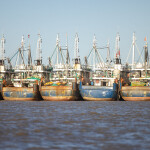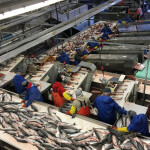If you want to see Boston chefs get hot under the collar, throw their hands up in confusion, or sigh in resignation, just ask them about seafood sustainability.
The topic has been under discussion so long it’s gone from buzzword to cliché, and consumers might be forgiven for thinking that sustainability has been resolved. Not so, say chefs and seafood market owners. But they do need something to go by. Michael Leviton, of Lumiere in West Newton and Area Four in Cambridge, offers this definition from the United Nations: “The ability to provide for the needs of today without compromising our ability to provide for the needs of the future.’’ But, he adds, “That sounds all nice and simple, but at the end of the day, it really isn’t.’’
Here’s another definition from Melissa Kogut, executive director of Chefs Collaborative, a national chef network promoting sustainable food practices: “Sustainable seafood is wild caught or farmed with consideration for the long-term viability of the species, affected eco-systems, and fishing communities.’’
Nor does that seem to clarify the subject for working chefs. “I’ve been in the seafood business for 40 years,’’ says Jasper White, chef and partner of the Summer Shack restaurants. “The whole thing about sustainability is that the more I learn, the more confused I get.’’
Most chefs are concerned about sustainability - whatever their definition - but they also have businesses to run, customer expectations to meet, and, in many cases, ties to the local fishing community. On top of all that, they have to be mindful of state officials vowing, after a Boston Globe investigation last year, to crack down on restaurants, supermarkets, and seafood suppliers that mislabel fish. All of this drives decisions about what to purchase.





